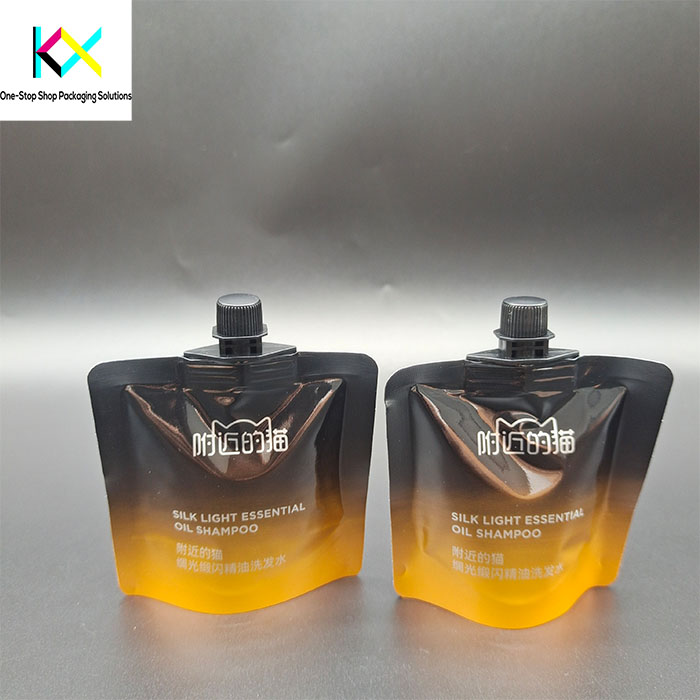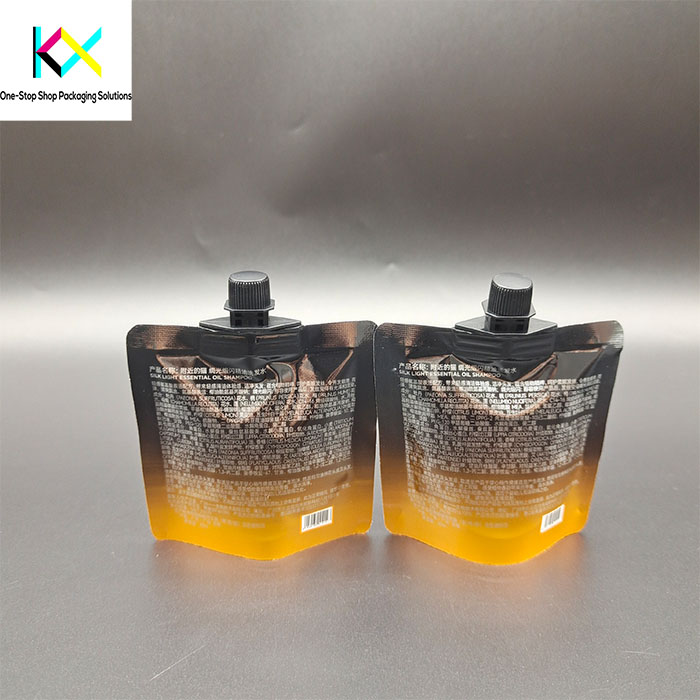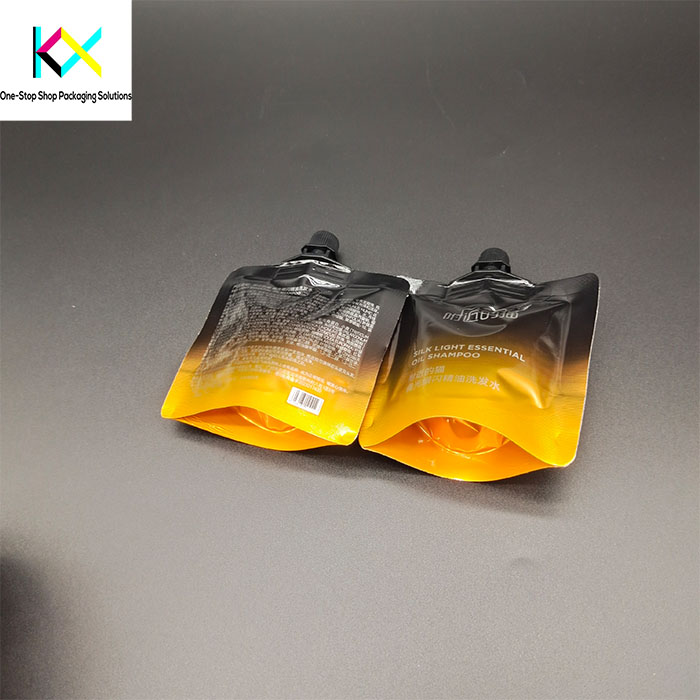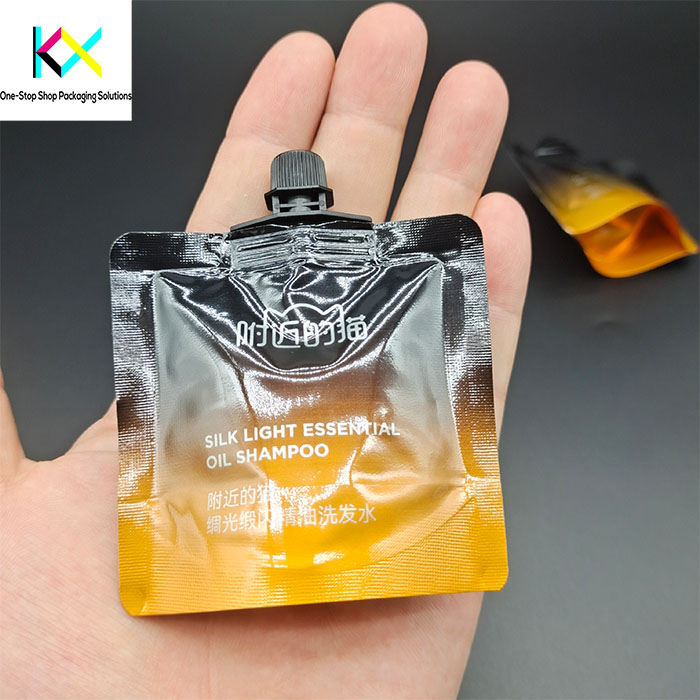Shampoo Refill Pouch Innovations: How Liquid Packaging Is Driving the Circular Beauty Revolution
The personal care industry’s sustainability transformation hinges on a deceptively simple solution: the shampoo refill pouch. These lightweight, flexible packs are disrupting traditional bottle-dominated markets, reducing plastic waste by up to 70% while borrowing material science breakthroughs from an unlikely ally—juice pouch packaging. As global refillable beauty markets surge toward $36B by 2027, these unassuming pouches are becoming linchpins in the zero-waste economy.

Cross-Industry Material Revolution
The evolution of shampoo refill pouch designs owes much to beverage sector innovations. Juice brands pioneered high-barrier mono-material PE structures to protect oxygen-sensitive liquids—a technology now adapted for sulfate-free shampoos vulnerable to oxidation. Brands like Ethique and Plaine Products use juice-inspired juice pouch packaging laminates with embedded EVOH layers, creating fully recyclable pouches that maintain product integrity for 18+ months.
Meanwhile, compostable breakthroughs are accelerating. TIPA’s PBAT-based films (originally for cold-press juices) now appear in shampoo refill pouch lines, decomposing in 12 weeks. The synergy is clear: juice’s battle against spoilage directly informs shampoo’s fight for pH stability.

Smart Features: From Pour Spouts to Precision Dispensing
Juice pouch packaging’s signature spouts are being reengineered for personal care:
Anti-clog valves (adapted from smoothie pouches) prevent thickened shampoos from blocking outlets
Magnetic closures enable single-handed operation for shower use
Transparency windows showcase product levels, inspired by Naked Juice’s design ethos
L’Oréal’s recent shampoo refill pouch launch features QR-coded batch tracking—a tech first seen in premium juice brands like Suja. This convergence transforms functionality: what protects acai purity now preserves keratin complex efficacy.

The Infrastructure Challenge: Recycling vs. Reuse
Despite innovation, only 14% of flexible packaging is recycled. Shampoo refill pouch brands tackle this through:
Pre-paid return programs (e.g., Garnier’s TerraCycle partnership)
Water-soluble adhesives allowing easy label separation during recycling
Retail refill stations where consumers refill bottles via pouch dispensers—mirroring bulk juice kiosks
Juice pouch packaging’s struggle with municipal recycling compatibility offers crucial lessons. Brands like P&G now print ASTM recycling codes directly on shampoo refill pouch surfaces, educating consumers while complying with California’s SB 54 mandates.
Economic & Environmental Impact
| Metric | Juice Pouch Packaging | Shampoo Refill Pouch |
|---|---|---|
| Plastic Reduction | 50% vs. glass | 70% vs. bottles |
| Transport Emissions | 35% lower | 40% lower |
| Consumer Adoption | 62% among Gen Z | 48% growth YoY |
Source: Smithers 2024 Flexible Packaging Report

Future Frontiers: Edible Films & Blockchain
Juice and beauty sectors are co-developing next-gen solutions:
Seaweed-based barriers (Notpla) that dissolve during shampoo rinsing
Blockchain-tracked pouches tracing recycled content from post-consumer juice packs to shampoo refills
Temperature-sensitive inks indicating product degradation—pioneered by Bolthouse Farms, now in Kérastase’s premium line

Conclusion: The Unlikely Synergy
The shampoo refill pouch revolution proves sustainability thrives on cross-industry pollination. As juice-derived mono-materials replace multi-layer plastics, and smart dispensing tech migrates from grocery aisles to showers, these pouches embody circular innovation. With 78% of consumers willing to pay more for refillable beauty (McKinsey 2023), brands ignoring this juice pouch packaging-inspired shift risk being washed away.
The future is flexible, refillable, and relentlessly efficient—one shampoo refill pouch at a time.
You can visit our website to know more about our flexible packaging pouch:
